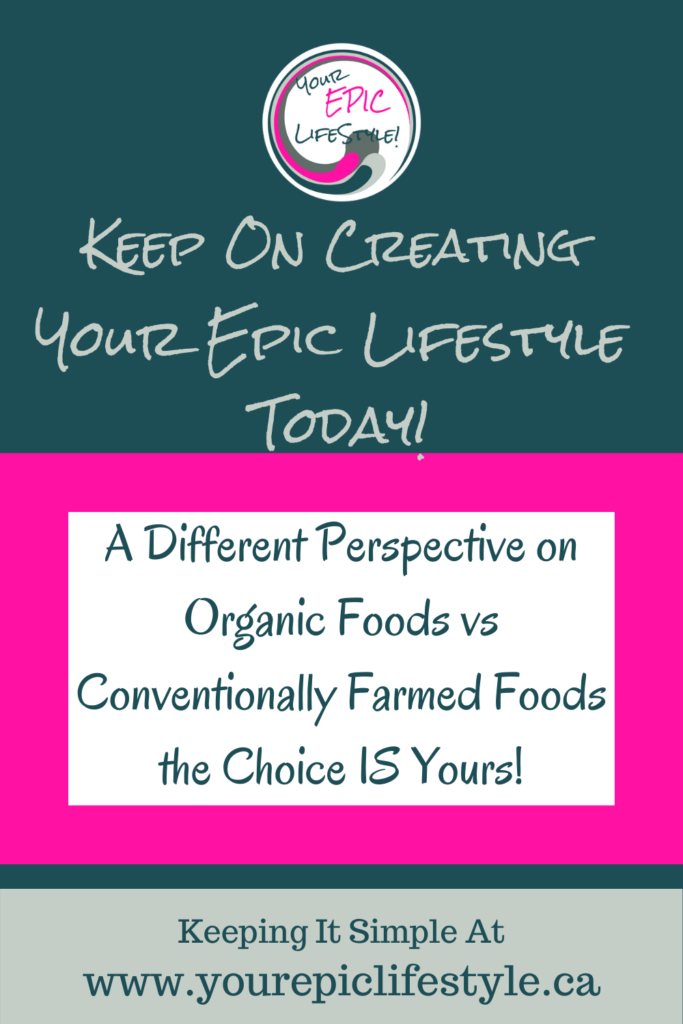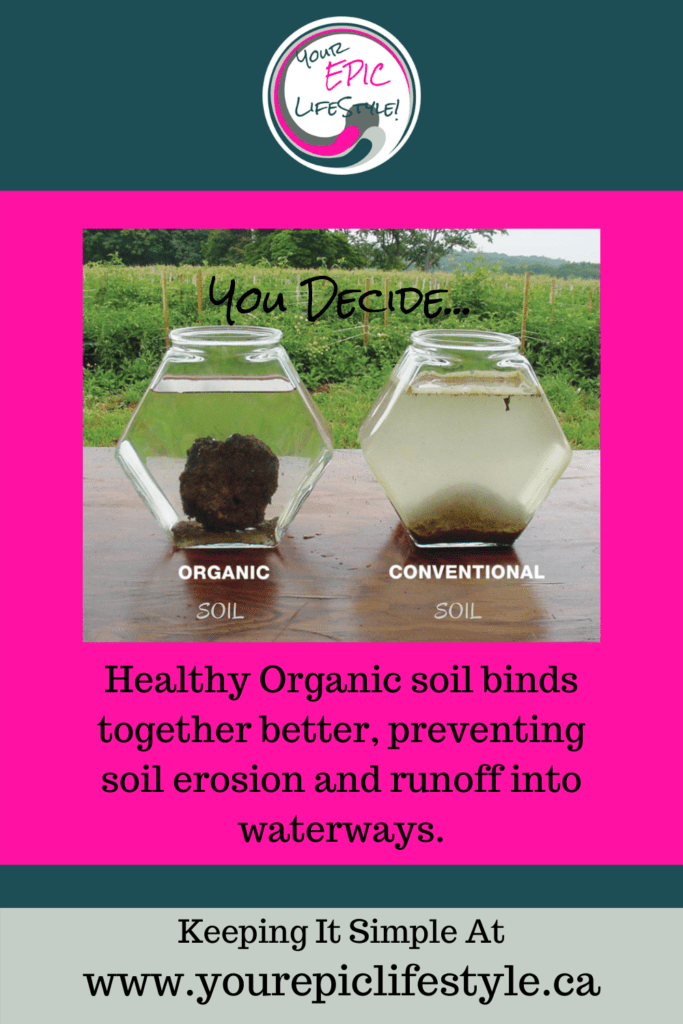Organic Food Costs More Compared To Conventional Foods – Are you Getting Your Money’s Worth?
by Cam Green, Lifestyle Coach, Cancer Survivor, Nutrition Advocate
Author of Your Epic Lifestyle!

Organic Food Costs More Compared To Conventional Foods – but are you getting your money’s worth? Read on to find out when it comes to Organic Food VS Conventional Food is one really better than the other?
In this blog post, I will be talking about the difference between foods grown the way nature intended verse how the majority of fruits, veggies and meat are grown today as well as how to get the most value for your money when it comes to buying these foods.
If you have been looking to live a healthier lifestyle or already are, first congratulations and second I’m sure you have come across some confusion… should I eat this or should I eat that, well the ongoing debate out there with health professionals, nutritionists, and the media all giving different views about whether organic food is worth the somewhat higher prices or should you just eat modern farmed foods?
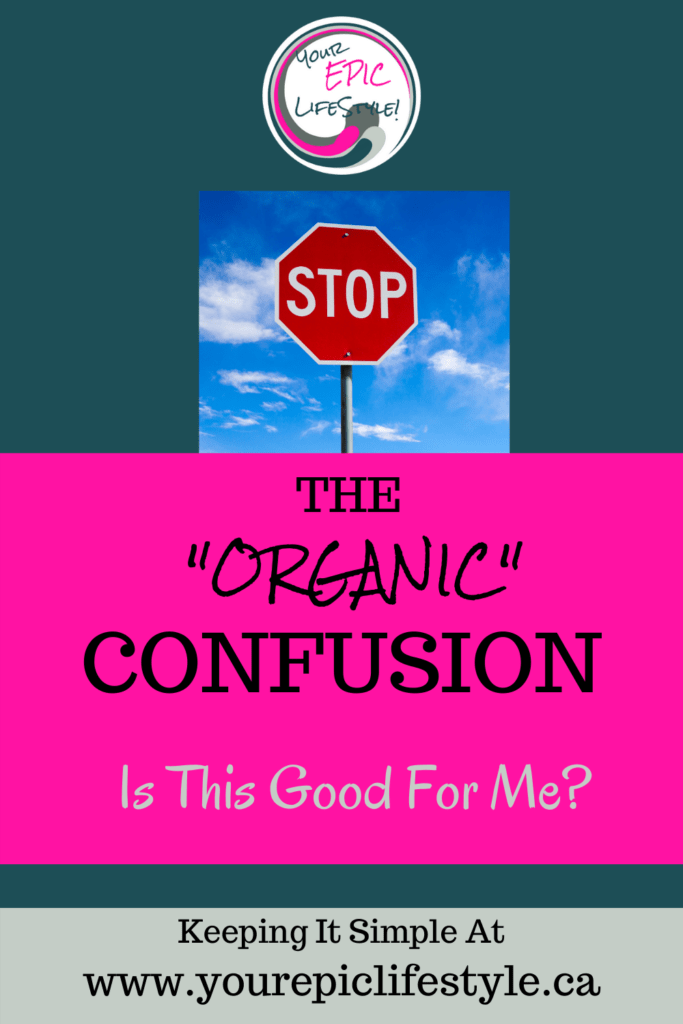
Here is the deal, there are some VERY important aspects around organic food that I hardly see anybody out there talking about…
First, as you may know already, the biggest thing that most people talk about in the organic food vs conventional food debate is whether the food was grown naturally the way nature intended or with pesticides, herbicides, fungicides, or chemical fertilizers and whether that food contains pesticide/herbicide residues in or on the food when you eat it.
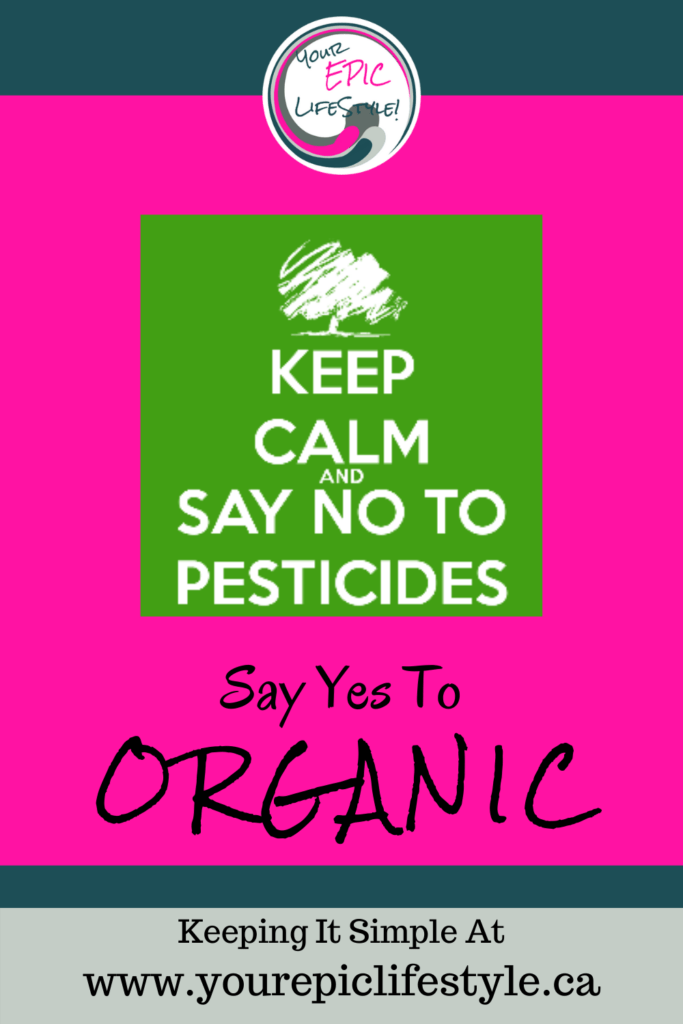
This IS VERY important… I mean, I know the last thing I want especially after going through chemotherapy is to be putting in my body pesticide residues that are potentially carcinogenic (having the potential to cause cancer) or even estrogenic (promoting estrus) and can possibly increase belly fat (due to the chemical xenoestrogens)… and I’m sure I can safely say you don’t either!
But there’s another MAJOR side of organic food vs conventional food that the majority of people are failing to talk about, and that is:
The impacts chemicals have on the soils during conventional farming, and how that directly affects the nutritional makeup of the food we eat (quantities of vitamins, minerals, and antioxidants in the food).
The harsh chemical pesticides, fertilizers, and herbicides used in conventional farming kill a large portion of the microbial activity in the soils (bacteria and fungi) that are essential in making soil minerals nutrient-dense and more available to the plant’s roots.
The bottom line is that conventional farming destroys the soil which results in lower micro-nutrient levels in the plants that you eat, essentially you are not getting what you pay for with these types of food.
Organic farming on the other hand does not use these harsh chemicals, the soil, therefore, is healthier and more biologically alive (producing fungi and bacteria that aid the plant roots with the uptake of minerals and other nutrients), and the plant’s roots can therefore get more nutrition which yields foods with higher micronutrient levels and antioxidants.
Don’t take my word for it test it for yourself, buy veggies from the grocery store and make a salad and then find someone with a garden at home that the veggies are grown in natural soil and tell me if you can taste the difference.
Natural… The Way Mother Nature Intended!
Here is something you may not have realized…
Studies have shown that the heavy use of chemical fertilizers, which make crops grow much faster than normal and increase profits, leads to a shallower less healthy root system. This shallower root system innately receives fewer micro-nutrients from the soil compared to organically raised plants that naturally are forced to have deeper, more extensive root systems to get all of the nutrients the plant needs right from the soil in its natural state.
I bet you didn’t think about THAT aspect of organic food before!
I really am just scratching the surface (no pun intended) on how this all works but I believe it’s easy to see why organic foods can have better nutrition levels and more vitamins, minerals, and antioxidants than conventionally grown foods.
Organic Foods Contain 18-69% More Antioxidants
In fact, according to studies reported by Dr. Mercola, “Organic foods contain 18-69% more antioxidants than conventional varieties of those same foods.”
Believe me, I know with the internet we have information overload, so whatever you choose to believe, you can find information that will support your idea. So beware of conflicting “reports” out there about this topic. Although there is an incredible amount of data on the superior nutrition levels of organically grown foods, you may also find some data that contradicts these findings in particular studies.
There is a reason that this happens and that is because science isn’t perfect, for example, scientists may measure the nutrition levels of a certain type of conventional tomato and compared it to a different type of organic tomato, grown in a different geographic region in vastly different soils and climate. Obviously, there are hundreds of complications with these types of studies, which is why you can’t always make direct comparisons.
However, I think with the evidence I’ve talked about so far, in terms of soil quality, nutrient uptake, and also the fact that we don’t want carcinogenic and estrogenic chemicals in our food, it is 100% worth the cost and effort to know where and how the food you eat daily is produced and to buy organic foods as much as possible.
Talking about costs, keep in mind that the more that we all band together and make smarter more sustainable choices at the grocery store in buying organic, the more companies will respond to that demand, and prices will naturally drop over time, and possibly become very close to conventional food prices.
Local may be MORE important than “Organic”
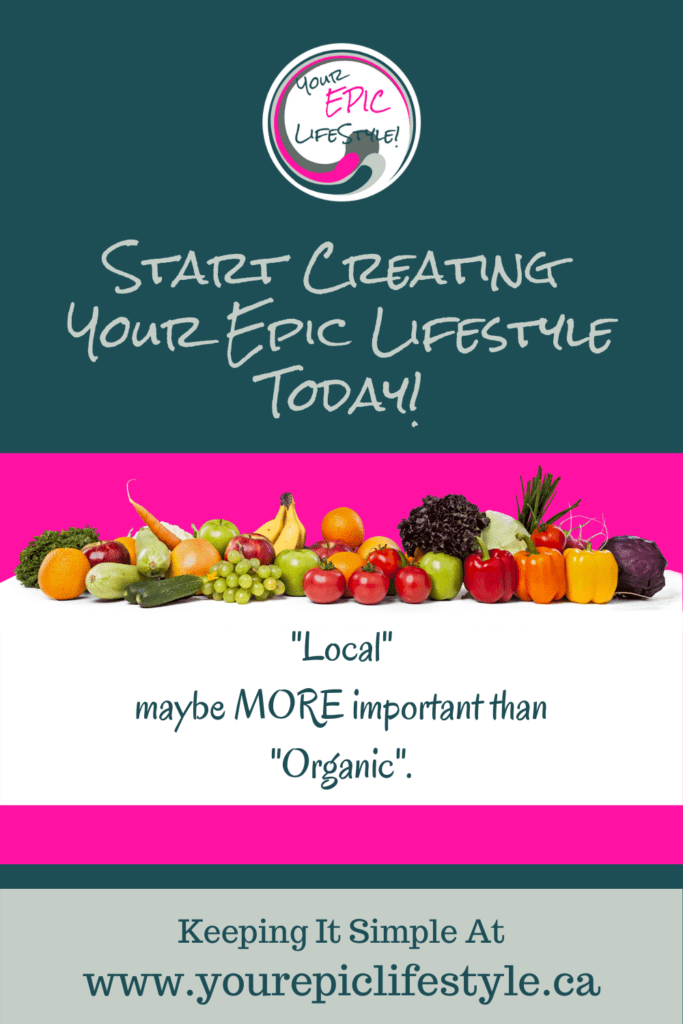
Here’s another extremely important thing about “organic” to keep in mind…
If you pay attention you will notice that much of the organic food in the grocery store in North America comes from halfway around the world (such as organic produce from Chile or New Zealand), so you might want to consider supporting local produce even if it’s not labelled “organic”.
Do some research in your area and you may find some local growers who may actually have organic produce or at least close to organic (meaning they use very little chemicals compared to some larger industrial farms) but because of regulations, they are not allowed to say their food is “organic” if they haven’t paid to get the necessary licenses they need for that.
Another benefit of local produce that makes a difference is that is picked at its peak of ripeness and can be on your plate in a matter of hours or days, which will usually yield much higher nutrition levels compared to “organic” produce from around the world that was picked well before it was ripe and travelled weeks to make it to your grocery store.
Frozen fruit is the one caveat to produce from around the world… sometimes fruits and veggies are picked at their peak of ripeness and flash-frozen. In this case, organic frozen fruits and vegetables can be just as nutritious as local produce (one con to this is that they may carry a bigger petroleum burden than local produce).
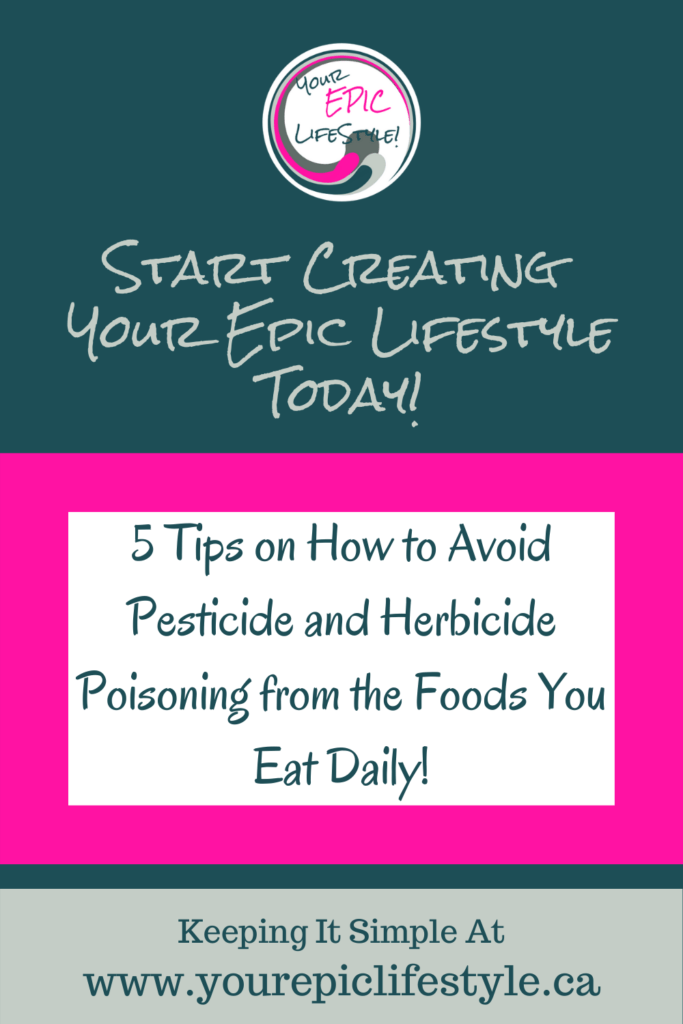
So to wrap things up, here are my 5 recommendations to protect yourself from the health risks of pesticides and herbicides, while still eating food that contains the highest levels of vitamins, minerals, and antioxidants, it is this:
1. when available choose organic food over conventional food more often than not, if it is available.
2. When available choose local foods over organic when the organic food has come from a distance around the world (remember frozen organic fruits and vegetables can be just as nutritious as local)
3. You can make a positive impact on the earth. Choosing organic also helps to protect the environment from the destruction of chemical fertilizer and pesticide pollution that is harmful to our ecosystems, disrupt soil microbiology, and possibly even spoil your own drinking water supply(think about that for a second).
4. Don’t be fooled by “organic junk foods” — I’ve been noticing this trend lately — Crafty marketing of crackers, cookies, cakes, cereal, and corn chips want you to believe that just because it says “organic” on the label that doesn’t mean they are good for you… junk food is still junk food! And the fact is these are still highly processed foods that can make you fat!
5. I know not everyone who reads this cares about their health as much as I do, so if you’re not going to eat organic for all of your produce and other foods, at least try to choose organic when it comes to these top 6 worst offenders for pesticide residue in conventional produce:
- celery
- onions
- peaches
- strawberries
- apples
- blueberries
These are 6 of the most important foods to choose from organic.
I want to leave you with this one last thing to think about, remember that creating change for more responsible agriculture starts with the choices you make as a consumer. The more we all demand responsibly grown and raised foods by putting the right foods in our shopping carts, the more the producers and suppliers will have to respond to that demand and prices should go down for these higher-quality foods.
My goal here is to give you a different perspective on organic foods vs conventionally farmed foods and hopefully, you will make some better choices of what foods you put in your body and why. If you liked this article, please share it with your friends and as always comment below with your thoughts on this topic, I would love to hear what you think.
A Different Perspective on Organic Foods vs Conventionally Farmed Foods
